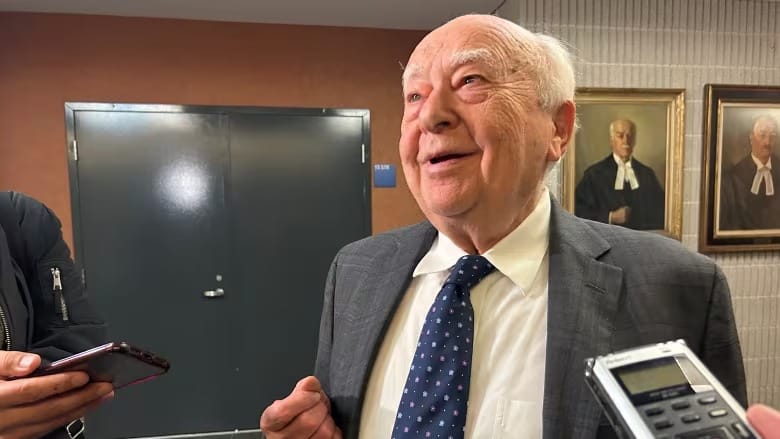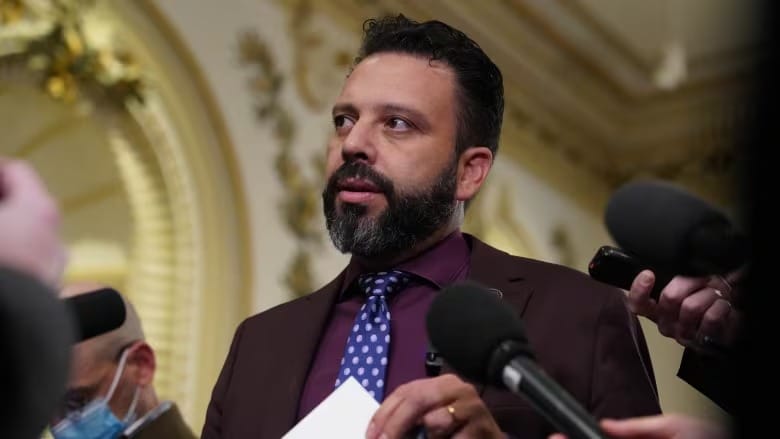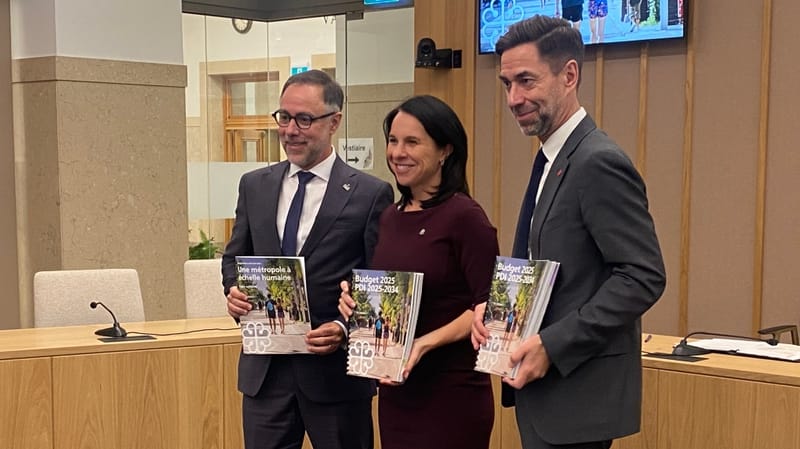23 bilingual Quebec municipalities challenge province's new language law in court
Municipalities ask court to suspend parts of Bill 96 while they contest it

Twenty-three municipalities from Quebec appeared in Superior Court in Montreal on Monday, seeking a judge's order to suspend parts of Quebec’s new language law, Bill 96, while they proceed with a legal challenge against it.
The municipalities’ legal challenge is expected to take several years to go through the court system.
Representing the municipalities, lawyer Julius Grey argued before Superior Court Justice Silvana Conte that enforcing certain provisions of the law during the legal proceedings would cause significant harm.
“There is clearly prejudice. It’s not a matter of life and death, but there is serious prejudice,” Grey told reporters during a break in the hearing.
Grey requested the judge suspend four specific provisions of Bill 96 for the 23 bilingual municipalities until their legal challenge is resolved. These provisions include:
- The requirement that all municipal contracts be written in French, even when all parties involved are anglophones.
- The power for the province to withhold grants and subsidies from municipalities that do not comply with Bill 96.
- The provision allowing inspectors from the Office Québécois de la langue française (OQLF) to conduct searches and seize documents without a warrant or prior notice.
- The mandate for municipalities to discipline employees who fail to comply with the law.
Grey argued that municipalities should not be forced to adhere to these provisions while awaiting the final outcome of the legal case.
“The extensive powers of search and seizure, the withholding of subsidies, and the obligation to discipline employees should all wait for a final decision on the legal framework,” he said.
Province Argues Fear is Not Enough
Charles Gravel, representing Quebec's attorney-general, countered that the municipalities failed to provide evidence that Bill 96 had caused any irreparable harm.
Gravel noted that no examples were presented of invasive searches, withheld subsidies, or unfair employee discipline since the law came into effect.
“Prejudice needs to be adequately demonstrated,” Gravel argued before the judge. “Fear alone is not enough.”
He also stated that municipal governance falls exclusively under provincial jurisdiction and that the province has the authority to set rules, including those related to language use. Gravel argued that municipalities were not created with a linguistic mandate and do not have constitutional protection for minority language rights.
Gravel concluded that the issues raised by the municipalities were not serious enough to warrant suspending the law.
Grey maintained that postponing the application of the law until the court challenge was resolved would not affect its long-term enforcement, making the suspension justifiable.
The judge expressed her intention to deliver a decision promptly but emphasized that she would need time to consider the arguments.
Municipalities Challenging Bill 96:
- Baie d'Urfé
- Beaconsfield
- Blanc-Sablon
- Bonne-Espérance
- Chichester
- Côte Saint-Luc
- Dollard-des-Ormeaux
- Dorval
- Havelock
- Hope Town
- Kazabazua
- Kirkland
- L'Isle-aux-Allumettes
- Montréal-Ouest
- Mulgrave-et-Derry
- New Carlisle
- Pointe-Claire
- Senneville
- Sheenboro
- Shigawake
- Stanbridge East
- Wentworth
- Westmount





